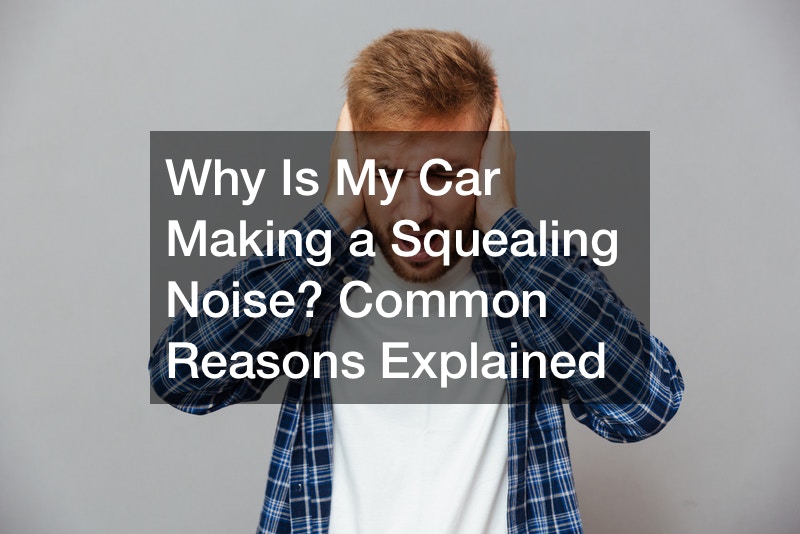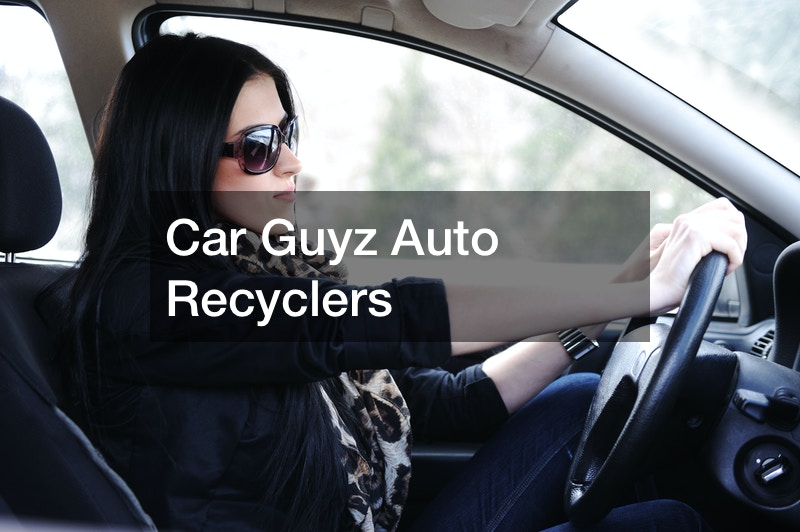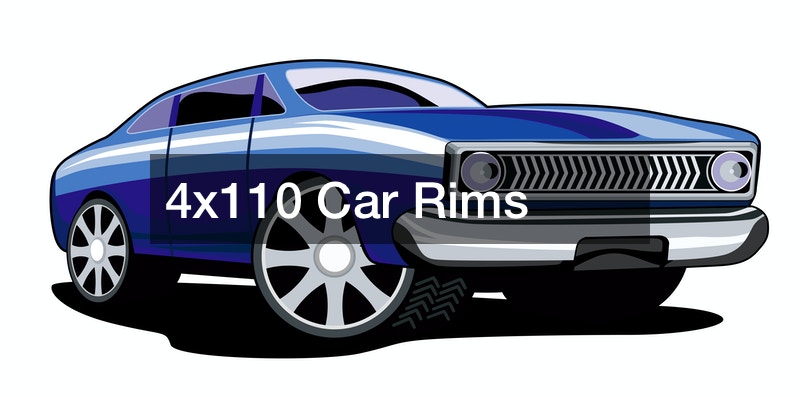Squealing noises are often a symptom of common car issues, which you can solve quickly and easily. There are many explanations as to why is my car making a squealing noise, but some are much more common than others. Some examples of these sounds include fluid leaks, worn-out gearboxes, differential clutches, or anything that is working hard and needs lubrication. Even tires may be causing squeals if there is dirt on them or they aren’t rolling correctly because of wear and tear. Here are some common reasons explained.
Weak Engine

Technically, this is when your tires are spinning without moving. When a car starts moving from a dead stop position, the engine doesn’t have enough power to overcome inertia immediately. The wheels start turning and get up to speed before transferring power back through the transmission and into the wheels. The result is wheel spin.
It is one of the answers to why my car is making a squealing noise. It causes the squeal to continue until there’s enough power. Since the car doesn’t have enough energy to move, the tires still have a lot of momentum and continue spinning.
Traction Issues
One of the most common explanations for why is my car making a squealing noise is traction issues that will cause improper tire pressure. It can cause uneven tire wear, leading to even more traction issues. If your tires are too loose or too tight, it can cause them to drag on the road as they try to find grip and spin up again while they’re already moving.
Another common traction issue with your wheels is a flat tire. When a tire goes flat, it takes power away from your car, and the result is nothing more than an annoying noise, but if you don’t have heat in the vehicle, it can catch fire. If you’re unsure what causes a squealing noise from your tires, check to see if there’s water inside or outside them.
Pull off and check for a flat tire if you’re driving on the road and hear this kind of squeal. It will be more prominent if you have a flat, and you can take care of it right then. If you don’t see any issues and the squeal continues, stop driving and switch to the other side. You can reach for help from the nearest auto repair shop to fix the problem.
Squealing at High Speeds on Open Roads
It is one of the answers to why is my car making a squealing noise on the open road outside. The engine pushes down on your car again, causing wheelspin. The difference here is that this doesn’t happen when you’re just starting up from a dead stop but instead happens at high speeds. When you get to this speed, your car needs to overcome more air resistance, requiring more power.
People come up with many reasons why their car makes squealing noises, but their ignition system usually causes it. An older ignition system is the most common cause of wheel-spinning noises when you’re on the road. If you can hear this squeal before you’ve even gotten to 50mph, it’s time to change that ignition system. You can make adjustments with the help of auto body repair experts. Another quick fix that might work is having an old spark plug replaced.
Overinflated Tires

Overinflated tires are another explanation for why is my car making a squealing noise. When you hear a loud, strange noise coming from your car’s tires as soon as you turn the engine on, it could be because there’s air in the tire. The sound is squealing because it resembles metal scraping against metal. You can correct overinflated tires in the automotive restoration center near you before they cause problems.
Overinflated tires are usually easy to determine because they compress themselves or flatten out. It can make them seem less round-like and flatter in the middle. It would help if you looked for signs of a blowout on your car’s side in many cases before an actual accident because the inflated tire could fail without warning.
Overinflated tires will wear out much faster than they should. That’s because your tires constantly rub against the other side or something else in the car, leading to additional wear and tear on them than they should have.
Improperly Adjusted Brakes
If you are wondering why is my car making a squealing noise, there is a good chance it has improperly adjusted brakes. With the advent of power brakes, improper adjustment can cause an issue that will give your car quite the headache.
One cause could be excessive dirt on one or both brake pads. Where it needs to move, dirt can scratch and damage these surfaces. It can cause uneven braking due to material build-up in the friction area between brake pads and rotors, resulting in vibration, often mistaken for squealing noises when braking.
Another cause could be that the brake pad contact area is too small. If this happens, the foot of the driver can push against a small size of the brake pad causing vibration.
Brakes need to be adjusted before they cause annoyance which may lead to dangerous situations requiring towing services. There are other causes for squealing, such as mismatched brake pads, bolts coming loose or worn-out brakes. It would help if you also inspected these things to prevent any damage or increased squealing noises.
Rusty Brake Pads
Rusty brake pads are one of the answers to why is my car making a squealing noise. Rusty brake pads will do more than make noise. They can cause faster wear to other components in your braking system and reduce braking efficiency, leading to an unsafe driving environment for you and others on the road.
A brake pad can become rusty when it comes in contact with road dirt, grime, water, or other chemicals in the road. It could occur when the brake pads are not adequately maintained, or there is never a clean-out of the brake system.
Brake pads will also rust if continually worn down. It can happen quickly over time, usually lasting anywhere from one day to two weeks, depending on how often your brakes get used. Over time, your pads will get progressively more rigid and more prone to making rusting noises due to this wear.
You must ensure your brake pads are in good shape during winter driving. Most car owners know that brake pads get rusty quickly because moisture gets into them over time. If you’re experiencing squealing or grinding noises when your vehicle is being driven or parked outside over long periods, your car needs mechanical services. You can prevent this by checking the condition of your brake pads regularly.
Painted metal surfaces like steel and aluminum can rust quickly in the rain and direct sunlight, especially when the car is parked outside for extended periods. Keep these surfaces free from any rust spots or rust stains as much as possible. To keep engine oil from spilling on painted car parts and getting into brake parts, be sure to cover the entire area under your car with blankets or tarps when you park it in wet weather so that your brake components do not get rusty.
Loud Engine Belts

Loud engine belts are another answer to why is my car making a squealing noise. The noise from an engine belt is unbearable. It feels like the belt is rubbing your skin raw and makes a squealing sound that you can’t stop hearing. It may be due to the wrong size or tension of the belt, a broken timing chain, or something more serious such as a damaged water pump. You can stop this sound by replacing the timing chain cover gasket, but this fix comes with its risks and can cause issues beyond just engine noise.
Check to see if your belts are stretching or flat tapered. If you notice that both front and rear belts have flat tapered out, this is due to bad installation and requires immediate replacement. It is common on cars with high mileage as stripped holes can cause such damage and must be repaired immediately for safety reasons. The repairs could be cheaper if you have car insurance.
Bad Spark Plugs or Ignition Coils
Some car parts that create these squealing noises include ignition coils and spark plug wires. Most people who are unfortunate enough to hear this noise can take comfort in knowing that it is not something serious, and they should expect to get some help immediately from their auto shop or wheel alignment garage.
The most common issue that explains why is my car making a squealing noise would be a spark plug wire which has failed. A plug wire broken off or corroded might resemble a squeal. Whether the wire is tight enough or loose could also cause the noise to vary in communication effectiveness. One of the other things you can do when the issue persists is to drive off and pull over onto a busy corner until you can fix it there. It is because this sort of problem will become worse when you are driving under heavy acceleration. It can also occur if you have recently changed spark plugs due to wear or an incorrect replacement part selection.
Bent Wheels or Shocks
Bent wheels are another explanation for why is my car making a squealing noise. It will cause tension on the belt and will cause it to squeal. You can tell if one of your car’s wheels is bent by placing it on top of a level surface and applying spin; it should spin easily. If you think one of your wheels is bent, you should immediately have the vehicle inspected by a reputable auto repair shop.
If the wheel is old and worn out, it may be safe to drive with it bent. If it’s a brand new or relatively new wheel and you notice that the damage is extensive or that the tire is already starting to wear down, it would be worth getting it repaired soon.
Your car’s shock absorbers help absorb any bumps in the road, so your suspension system doesn’t need to act as much. Some shocks are made of rubber, while others of metal. If the rubber shock absorber has worn down or cracked, your suspension system will be more susceptible to damage. Eventually, it will start making noise as you drive because the soft rubber is wearing down.
Bent wheels are easy to fix; you only need to straighten the rim and put everything back in place. Straightening the edges can be done using a hammer, but some prefer a wheel-alignment machine. It’s best to have a professional do this job if you don’t have experience dealing with bent rims.
Repairing worn-out shock absorbers is also easy, so long as you know how to replace them properly. Your mechanic should be able to get replacements quickly from any auto parts store in your area or from one of the local car dealerships. You can contact your auto insurance companies to find out if these types of repairs are covered.
If you have any questions about your wheel’s condition, primarily if you have heard a squeal or seen a bent wheel before, be sure to discuss your concerns with the mechanic working on your car. If they can use the wheel alignment machine to check it out and confirm that it’s bent, they will be able to advise you on how to fix it.
Worn or Damaged Transmission

A worn or damaged transmission or transfer case fluid tank is an answer to why is my car making a squealing noise. These fluids are necessary for the transmission and transfer case to work correctly and protect sensitive parts from damage. It could signal that they’re leaking inside when they become too low.
To diagnose this problem and repair your vehicle, consult a trusted professional who can diagnose the problem by visually checking for leaks in the tank when inspected and analyzing possible external leaks by putting fluid at specific places on your car. Working with an injury attorney for legal representation is helpful if you are involved in an accident.
In conclusion, many car problems can explain why is my car making a squealing noise. While all these noise issues may be annoying, they don’t usually mean your vehicle is unsafe to drive.
If your car makes squealing noises, it could signal that you need to replace its brake pads. It can be due to damage caused by excessive heat in the cushions, or it could also be a sign of a developing problem. The best way to determine the cause is to have your car’s brakes professionally inspected by a mechanic before proceeding with costly repairs.



